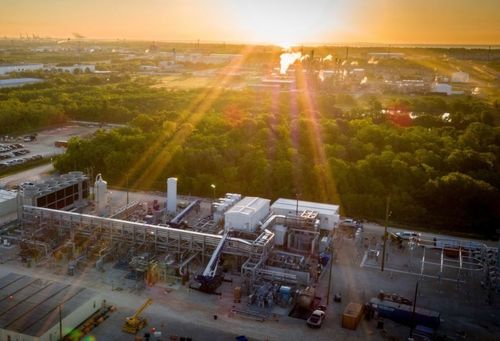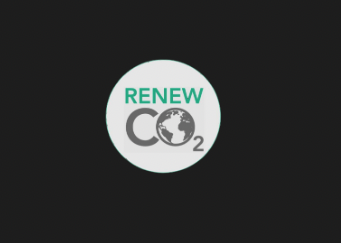RenewCO2 is developing and seeking to commercialize a modular technology that converts waste CO2 into a usable product.
The New Jersey-based company is advancing a pilot project at an Ace Ethanol plant in Wisconsin that will take CO2 and convert it to monoethylene glycol, which can be used by the plastics industry.
The project was recently selected by the US DOE to receive a $500,000 grant. It seeks to demonstrate the technology’s ability to reduce the ethanol plant’s carbon footprint and produce a carbon-negative chemical.
In an interview, RenewCO2 co-founders Anders Laursen and Karin Calvinho said their technology, which was developed at Rutgers University, is geared toward carbon emitters who can not easily pipe away their CO2 and who may have use for the resulting product.

“It’s a matter of economics,” said Calvinho, who serves as the company’s CTO. Using the RenewCO2 technology, the ethanol plant or other user is able to keep 45Q tax incentives for capturing CO2 while also creating a product that generates an additional revenue stream.
Additionally, the modular design of the technology prevents emitters from having to build expensive pipeline infrastructure for CO2, she added. “We want to help to facilitate the use of the CO2 on site,” she said.
One of the goals of the project is to measure the carbon intensity of these technologies in combination, which ultimately depends on the electricity source for the electrochemical process, similar to an electrolyzer, Laursen, who is the CEO, said.
“The main constraint from a location point of view is the availability of reliable and affordable green power,” Laursen added.
Creating a market
The principal target market for RenewCO2’s technology is existing producers of monoethylene glycol (MEG), which is used to make recycled plastics, as well as ethanol producers and other emitters with purified CO2 streams.
Producers of polyethylene terephthalate (PET) – one of the most recycled plastics globally – are also potential customers since they use MEG in their production process and have CO2 sources on site.
“Right now, MEG produced in the US is, for the most part, not polymerized into PET – it’s shipped overseas for making PET plastics used in textiles, and then made into fibers or shipped further,” Laursen said. “So if you can shorten that transport chain, you can reduce the CO2 emissions associated with the final product.”
RenewCO2 is looking for partners to help build the modular units, and is evaluating the purchase of existing PEM electrolyzer units that can be reconfigured, or having the units custom manufactured.
“We’re talking to potential manufacturing partners and evaluating whether we should do the manufacturing ourselves,” Calvinho said. And if they choose the latter route, she added, “we will have to build our own facilities, but it’s early to say.”
The company has raised a total of $10m in venture investment and grant funding, including a pre-seed round of over $2m from Energy Transition Ventures, a Houston-based venture capital fund.
While not currently fundraising, Laursen said they are always taking calls to get to know the investors that are interested in the space. He added that the company may need to raise additional capital in 12 to 18 months.






